High-Quality Fuel Tanks For Reliable Storage
A Long-Term Solution For Your Operational Fuel Needs
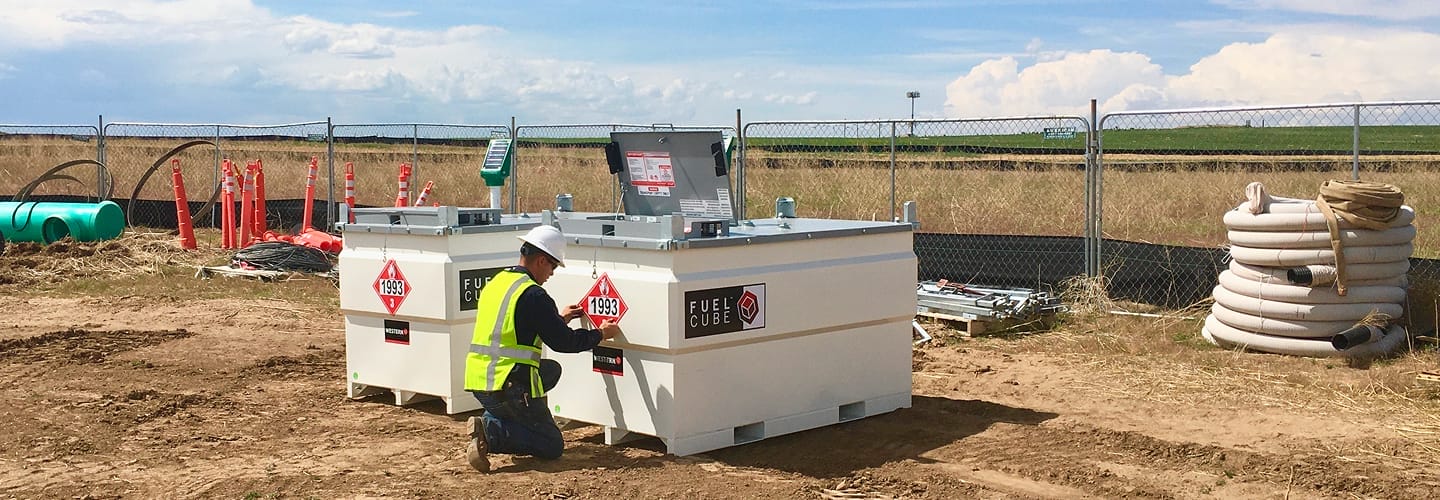
What We Do
Our Fleet Core Advantage: Built For Colorado Businesses

Fleet Core combines local expertise with deep, owner-operator commitment to customer-focused service, ensuring businesses across the Rockies are always fueled for success. From our reliable emergency response capabilities to custom solutions for diverse industries, we consistently earn the trust of Colorado’s growing industries.
Fleet Core’s Fuel Tank Purchase Service provides the durability, reliability, and superior long-term option needed to optimize fuel storage for a wide range of industries. From fleet management to construction and emergency preparedness, our tanks offer lasting value and compliance with the highest safety standards.
Our Service Offering
Is Purchasing Right For You?
The Value Of Owning A Fuel Tank

Cost Savings
Learn more →

Cost Savings
- Purchasing fuel in bulk often allows for lower per-gallon prices, especially when fuel costs are low.
- Over time, these savings can offset the initial cost of the tank.

Fuel Supply Management
Learn more →

Fuel Supply Management
- Direct control over your fuel supply
- You can purchase fuel when prices are low and store for use when prices rise
- Helps manage fuel costs and ensures you have a supply during fuel shortages or disruptions

Convenience
Learn more →

Convenience
- With a fuel tank on your premises, you can refuel vehicles or equipment on-site, as needed
- Avoiding the time and cost of refueling at local fueling stations
- Save time and increases productivity
Significant value for businesses with large fleets or heavy machinery

Emergency Preparedness
Learn more →

Emergency Preparedness
- A fuel tank can be a valuable asset in emergency situations. A supply of fuel on hand at all times can keep your operations running during power outages or natural disasters
- Particularly critical industries that rely on continuous power, such as Data Centers, Hospitals, or Manufacturing plants

Ownership Benefits
Learn more →

Ownership Benefits
- Cost savings
- Control over supply
- Convenience
- Emergency preparedness
- Larger businesses with substantial fuel needs
- Businesses in remote areas with limited access to fuel
- Businesses where fuel supports critical operations
The Risks Of Owning A Fuel Tank

Maintenance and Regulatory Compliance
Learn more →

Maintenance and Regulatory Compliance
- Tanks must be regularly inspected and maintained.
- Fuel leak prevention is required to ensure tanks meet environmental and safety regulations.
All can require significant time and resources.

Environmental Risk
Learn more →

Environmental Risk
- Fuel tanks pose a risk to the environment if not professionally managed
- Leaks or spills can contaminate soil and groundwater
- Can lead to costly cleanups and potential liability

Upfront Costs
Learn more →
Upfront Costs
- The initial cost of purchasing and installing a fuel tank can be high
- Upfront costs include: Fuel tank, site preparation, installation, potential site modification to accommodate the tank

Limited Lifespan
Learn more →

Limited Lifespan
- Fuel tanks do not last forever. Even with proper maintenance, a tank will eventually need to be replaced
- The lifespan of a tank can vary based on factors such as the tank material, the type of fuel stored, and the conditions of use and storage
Businesses That May Benefit More From Our Tank Leasing vs. Purchasing
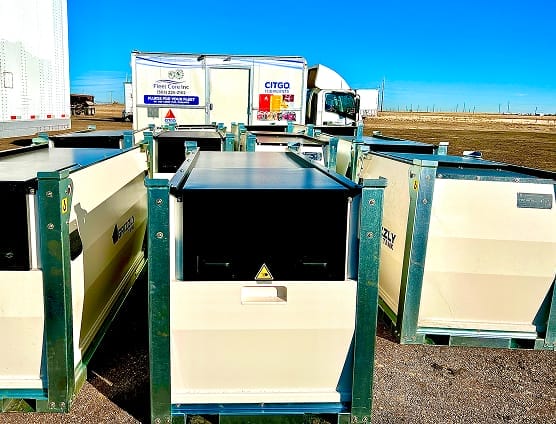
- Smaller businesses with limited fuel needs
- Businesses in urban areas with easy access to fuel
- Businesses that lack the resources or expertise to manage a fuel tank
- Businesses where tank leasing is a lower overall cost option
Why Choose Us
If Tank Purchase Is The Right Decision For Your Business
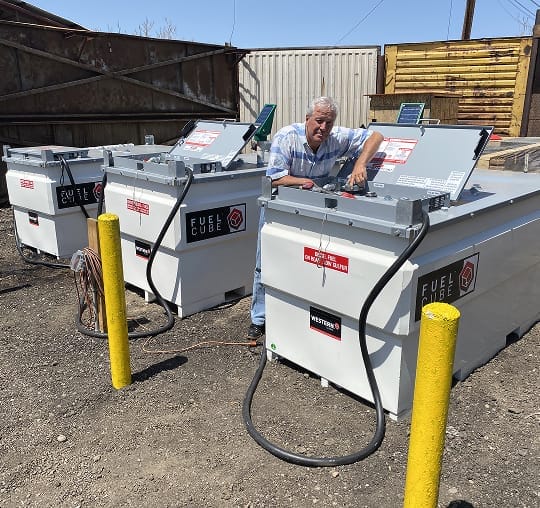
Durable Construction for Long-Term Use
- Our industrial-grade materials ensure corrosion resistance and long-lasting performance
- Built for Colorado’s demanding environments
- Additional safety features ensure optimal protection for your fuel investment:
- Leak detection
- Overflow prevention
- Reinforced housings
Streamlined Fuel Access and Control
- Refuel equipment, vehicles, and backup power systems without hassle
- Perfect for businesses handling multiple locations or fleets
- Enable emergency preparedness with secure, on-site diesel reserves.
Scalability Across Industry Needs
- Available tanks range from compact 500-gallon options to large-scale 10,000-gallon systems
- We ensure the right fit for your business size and application
Advanced Safety Features
- Integrated leak-prevention systems ensure fuel stays securely contained
Protects both your equipment and the environment - Emergency venting and pressure-release mechanisms provide safe handling under all conditions
Monitoring and Automation
- Optional real-time monitoring tracks fuel levels and usage trends
- Enables more efficient management and cost control
Sustainable Advantages
Reduce transportation needs and associated emissions by maintaining an on-site fuel supply—what you need, where you need it
Who We Serve
Who Benefits From Our Fuel Tanks

Fleet Management
Learn more →

Fleet Management
- Reduce operational delays with on-site storage
- Enable immediate fueling for trucks, fleets, and backup systems — as needed

Construction Site Management
Learn more →

Construction Site Management
- Support heavy-duty equipment and generator performance
- Durable tanks built to handle the demands of active Colorado construction sites

Operations Management
Learn more →

Operations Management
- Protect against fuel shortages with bulk purchasing options
- Stabilize supply chains
Reduce costs during peak operations

Environmental Compliance Management
Learn more →

Environmental Compliance Management
- Minimize exposure to leaks or contamination
- Maintains strict adherence to local EPA standards and avoiding regulatory penalties
Our Value
Your Path To Improved Operations
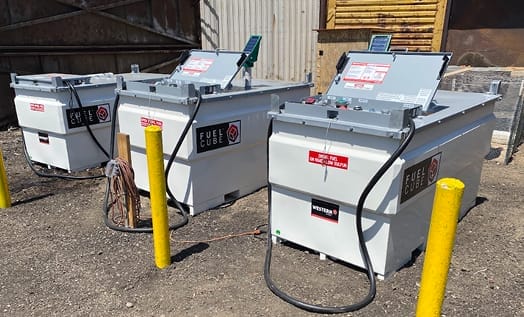
1. Easy Consultation
Collaborate with Fleet Core experts to determine the size, configuration, and additional features your site requires
2. Turnkey Installation
Our skilled technicians handle permitting, setup, and testing. We ensure seamless integration with your existing systems
3. Long-Term Support
Maximize your fuel tank’s efficiency with preventative maintenance services and ongoing performance evaluations
